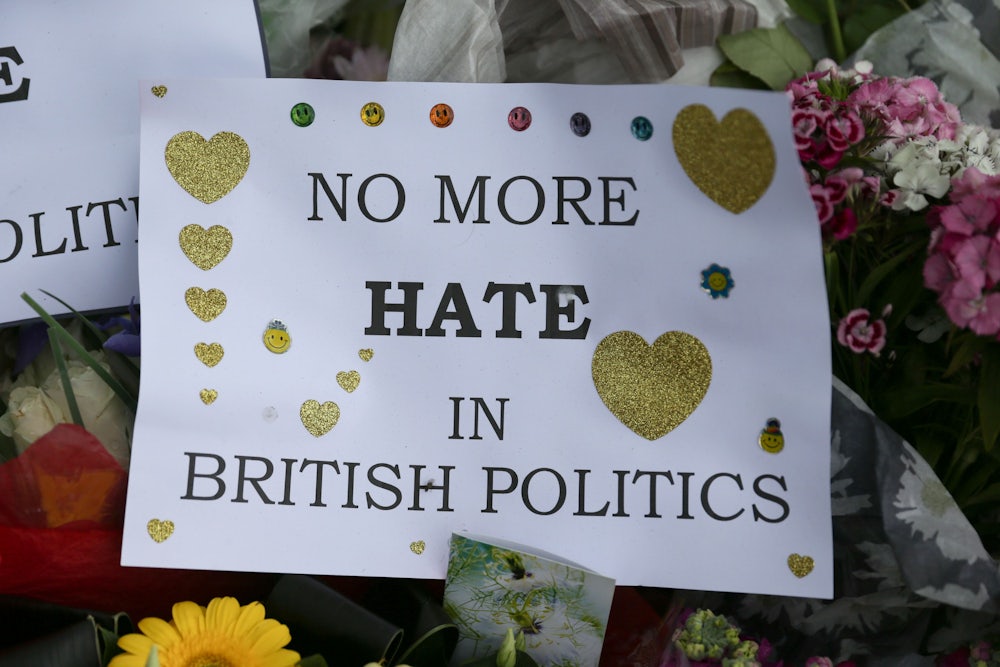“What the fuck, mate?” Leon Simpson jerked his head up from his phone, incredulous. “You’re voting Leave?”
Simpson had proclaimed himself uninterested in politics just a few minutes earlier. But hearing that his friend, Kenny Johnson, supported Britain’s withdrawal from the European Union shocked him out of that posture.
“Leavers” have been characterized as racists and fear-mongers, but Johnson, a 29-year-old project manager with fashionably thick-rimmed glasses, jumped to defend his position on pragmatic grounds. “When you mix all these economies with different levels of development together, it doesn’t work,” he said. “It’s a big group of politicians who don’t need to listen to anyone.”
Politics were impossible to avoid on Friday night at The Montagu Pyke, a Wetherspoon-owned pub in London’s West End where bright red beer mats urged patrons to “vote Leave—take back control.” The “Brexit” referendum, to be held on June 23, was less than a week away, and the nation was in mourning after Jo Cox, a pro-Europe Member of Parliament, was shot and killed a day earlier by Thomas Mair, who reportedly shouted “Britain first” during the attack and later told a judge, “Death to traitors, freedom for Britain.”
Political campaigns in Britain tend to be relatively restrained, partly due to cultural disposition and partly because they’re much briefer and less costly than in the U.S. But the nastiness of the Brexit debate, and now this tragic violence, have some in England fretting about an Americanization of British culture. As Johnson said, “Gun violence is something we associate with America.” British Twitter users put it more bluntly:
Horrible to hear that we are importing American political extremism. #JoCox
— R Kessler (@Ronniegeorge) June 16, 2016
Jo Cox may have been shot because our politics has degenerated into an American style culture war. Worst of media and politicians be ashamed
— Hani Latif (@kinghani) June 16, 2016
Is the whole world going all American re:gun violence? Such a shame! RIP Jo Cox #JoCox
— Sasha Kasujja (@sashakasujja) June 16, 2016
The unexpected success of the Brexit movement, meanwhile, has drawn parallels with the unlikely rise of Trump: both exploit anger over immigration and make appeals for national pride and exceptionalism.
“If you’re voting to leave, it’s a vote for Trump’s politics,” said Sunny Briah, 26. “I think it’s quite a clear link. A lot of the Leave campaigns also play on people’s fears and insecurities.”
Last month, a pro-EU group of street artists painted a mural onto an abandoned Bristol building, depicting pro-Brexit Boris Johnson, the Conservative former mayor of London, making out with Donald Trump. The image, which recalls the famous Berlin mural “My God, Help Me to Survive This Deadly Love,” has since popped up on posters elsewhere in England. The language of the Leave campaigners even echoes Trump’s campaign slogan. “Brexit will make Britain great again,” a former British Army commander wrote recently in The Telegraph.
The love affair goes both ways. Last month, Trump encouraged British voters to leave the EU, on the grounds that migration “has been a horrible thing” for the UK, and he reiterated his support for Brexit yesterday. “I would personally be more inclined to leave, for a lot of reasons like having a lot less bureaucracy,” Trump said before stating the obvious: “But I am not a British citizen.”
British voters complain that the Brexit battle has been infected by the type of ostentatious tactics and hyperbole they associate with American politics.
“It seems like the ‘Brexit’ campaign has learned from the polarizing and combative nature of American politics,” said Katy Fallon, a 25-year-old Remainer at The Montagu Pyke. “It’s as if Nigel Farage”—the leader of the UK Independence Party, which supports Leave—“is imitating the anti-immigrant rhetoric of Trump.”
In last week’s “flotilla battle,” which played for laughs stateside, Farage and pro-Europe musician Bob Geldof faced off in fishing boats on the River Thames. Johnson, the former mayor, has been touring the country on a bus emblazoned with the claim that Britain gives the EU 350 million pounds per week—even though official estimates are around half that.
“There’s a certain strain of American theatricality to the Leave campaign,” said London resident Jake Lancaster, who thinks British electioneering is usually “more dignified.” “I dearly hope that Brexit, like the Trump phenomenon, is just Britain clearing the mucus from its political throat.”
